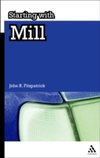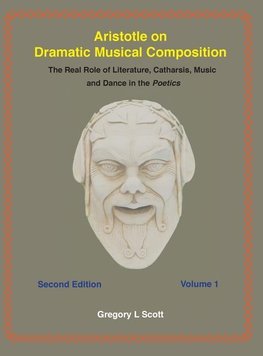
-
 Anglický jazyk
Anglický jazyk
Aristotle on Dramatic Musical Composition
Autor: Gregory Scott
This book revolutionizes the 1000-year old tradition that stems from the first commentaries on the Poetics by the Arabic scholars. Aristotle's treatise has always been thought to be about poetic-literary theory, with tragedy being its paradigm. Scott demonstrates,... Viac o knihe
Na objednávku, dodanie 2-4 týždne
65.52 €
bežná cena: 72.80 €
O knihe
This book revolutionizes the 1000-year old tradition that stems from the first commentaries on the Poetics by the Arabic scholars. Aristotle's treatise has always been thought to be about poetic-literary theory, with tragedy being its paradigm. Scott demonstrates, however, that Aristotle (384-322 BCE) employs poiesis not in the way universally assumed until now, as "language in verse" or "poetry," which the sophist Gorgias only coined in 415 BCE. Rather, Aristotle follows Diotima, who in the Symposium of Plato (424-347) explains poiesis as mousike kai metra (typically "'music' and verses"). One reason Aristotle employs the Diotiman and not the Gorgian sense of poiesis is that not one poem exists in the so-called "Poetics"; another reason is that the definition of tragedy includes "music." Scott subsequently demonstrates that Aristotle considers tragedy not to be a species of literature but one of dramatic "musical" theater that also requires dance and spectacle. Chapter 2 includes a revised version of Scott's "The Poetics of Performance: The Necessity of Performance, Spectacle, Music, and Dance in Aristotelian Tragedy" (Cambridge University Press, 1999). The book also supplements his arguments of "Purging the Poetics" (Oxford Studies in Ancient Philosophy, 2003), reprinted as Chapter 5, and provides the additional and seemingly insuperable reasons why Aristotle could not have written the clause with the words catharsis, pity, and fear in the definition of tragedy, as a number of internationally known ancient Greek specialists have already been accepting. One reason is that he defines by "biological division" and catharsis is not only missing from the preliminary divisions but is the only term in the definition not discussed in the entire treatise. A second reason is that catharsis contradicts the goal of tragedy as pleasure, itself indicated many times in the work. A third reason is that Aristotle writes in Chapter 13 that pity and fear do not belong to plots showing a virtuous person going from fortune to misfortune. Including pity and fear in the definition would thus exclude even plays like Antigone or Trojan Women from being tragedies. A fourth reason is that Aristotle says three times that tragoidos (originally "goat-song" but usually translated as "tragedy") can show agents going from misfortune to fortune, and the finest examples in Chapter 14 are the plays not like Oedipus but those ending happily, like Cresphontes, which would have no pity because of Aristotle's requirement of very significant suffering for pity. All of this allows a fresh and better reading of the treatise that even with its fundamental misinterpretations has been the foundation of Western literary, dramatic and artistic theory. VOL 1 includes Plato's and Aristotle's meaning of poiesis as "music-dance and verse" and of rhuthmos often as "dance," not "rhythm"; the importance of dance in the state for both thinkers, along with the proof that Aristotle considers tragedy to be a species of dramatic "musical" art. VOL 2 includes the issues of catharsis, pity, and fear, and a complete rebuttal of the only attempted rigorous reply (by Stephen Halliwell in Between Ecstasy and Truth, 2011) to "Purging the Poetics." Also inc
- Vydavateľstvo: ExistencePS Press
- Rok vydania: 2018
- Formát: Hardback
- Rozmer: 286 x 221 mm
- Jazyk: Anglický jazyk
- ISBN: 9780999704936
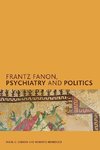
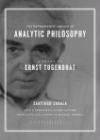





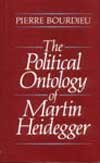
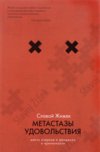
 Ruský jazyk
Ruský jazyk 

